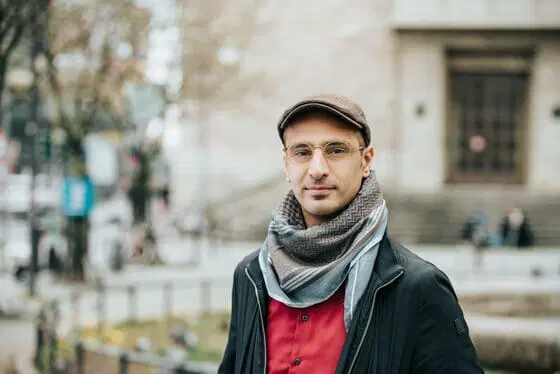On New Years Eve, in Berlin Neukölln, and in other areas, there were attacks on police and firefighters. There has been massive debate, but only about the situation in Neukölln. Julius Jamal from the freiheitsliebe website conducted this interview with Ahmed Abed, chair of the LINKE fraction in Neukölln.
Die Freiheitsliebe: Since New Years Eve there has been an intensive debate about attacks by young people on rescue workers and police. Berlin Neukölln is in the centre of this debate. What exactly happened?
Ahmed Abed: In Neukölln and in the whole of the Berlin, there were a lot of fireworks – I can still remember a New Years Eve around 20 years ago in Friedrichshain, where bangers were thrown from balconies at people on the street below. In many areas, including Neukölln, its predominately young men who throw fireworks like crazy. In other words, the extreme fireworks is nothing to do with “migrants”. But now its being said that more rescue workers and police are being attacked.
Die Freiheitsliebe: Some politicians are suggesting that the attacks with fireworks are a migrant problem. What’s your take on this?
Ahmed Abed: A very clear no! First, fireworks are a big thing for some young people and young adults, at least for a couple of years. Throughout Germany, young people’s exuberance and wish to provoke are a decisive factor. For this reason, many judges don’t see an increase of attacks on New Years Eve. It’s been a recurring experience for a long time.
On top of this, many Neuköllner with a migration background find the profusion of fireworks really bad, but don’t want to ban them. I’m one of these people. Describing people in Neukölln as “foreigners” or “immigrants” when they live here in the second or third generation is particularly wrong.
Die Freiheitsliebe: It is argued that problems are connected to “cultural infiltration” or a “West-Asian” type of person. What do you say to such assessments?
Ahmed Abed: That is just Nazi language. It is cheap and simple to blame “foreigners” rather than focussing on the social situation or youthfulness. Young people in Neukölln have few perspectives of [receiving a] good education, which can lead to a job. One in five – that is 20% – leave school without qualifications. In Neukölln, the youth poverty rate is 50%.
The SPD mayor of Berlin Frau Giffey knows this as she was once mayor of Neukölln and family minister. But she didn’t do anything. Many schools lack the necessary teachers and even head teachers.
I also think that it has a lot to do with young people’s urge to provoke, which has nothing to do either with background or social status. Finally. There are also fights and attacks on police and rescue workers at football games or, as we saw recently, in bars on Fuerteventura. But those were English football fans.
Die Freiheitsliebe: Critical voices see the problem in the rage of youth who have been left behind. Do you see things similarly?
Ahmed Abed: That is hard to say. We actually know very little about the young people and the reason for the excesses. But if it’s to do with the question whether it has anything to do with the social situation, then there would be some reasons in Neukölln, Berlin, and indeed also in East Germany, because of the high youth unemployment and the large number of people on Hartz IV.
Die Freiheitsliebe: What would your answer to the problem be?
Ahmed Abed: First I would say that the rescue workers should be sufficiently protected and instead of the fixation on sensation and the strong racism against migrant youth, there should be a more sober look at the events. The first question would be, if there really more excesses than in previous years or people are searching for a scapegoat for the annual normal state of affairs.
Then I would finally address the poverty here, equip schools sufficiently and stop stigmatizing people with Arab, Turkish and Muslim backgrounds with projects like “confrontational manifestation of religion” and business controls with machine guns. If it carries on like it has been, then social peace could be put under serious threat.
Die Freiheitsliebe: Thanks for the talk
This interview first appeared in German on the freiheitsliebe Website. Translation: Phil Butland. Reproduced with permission.
